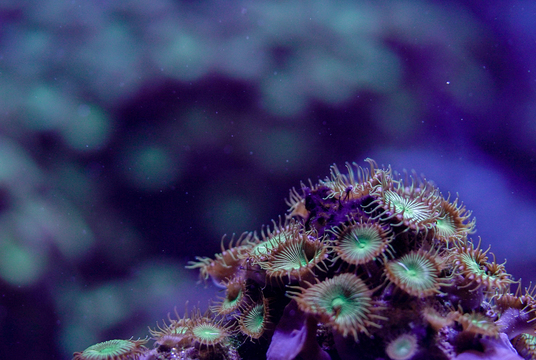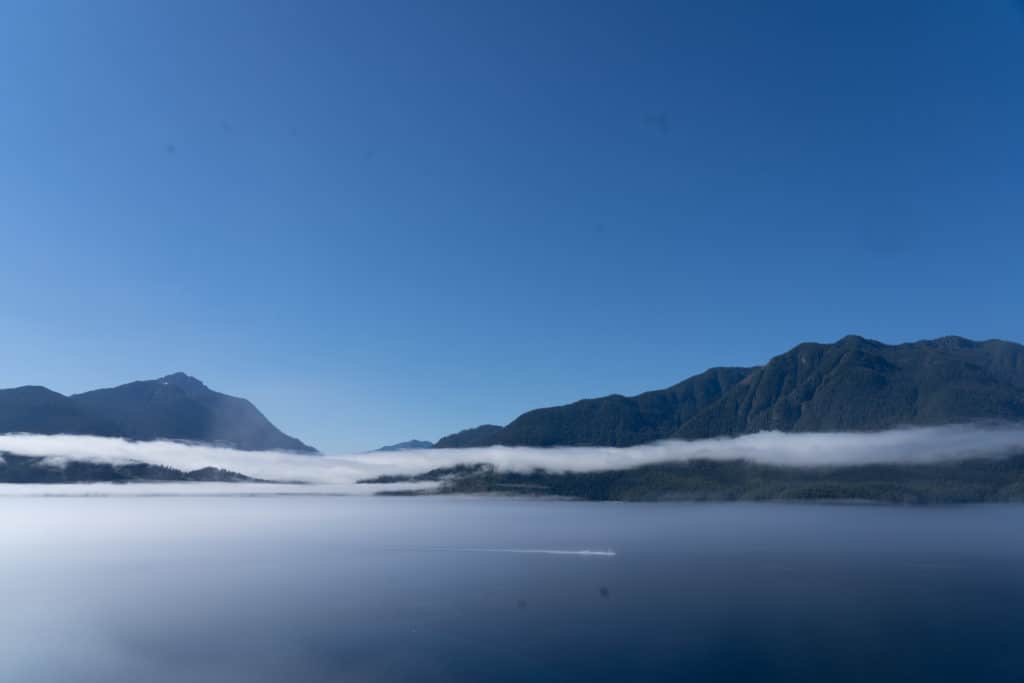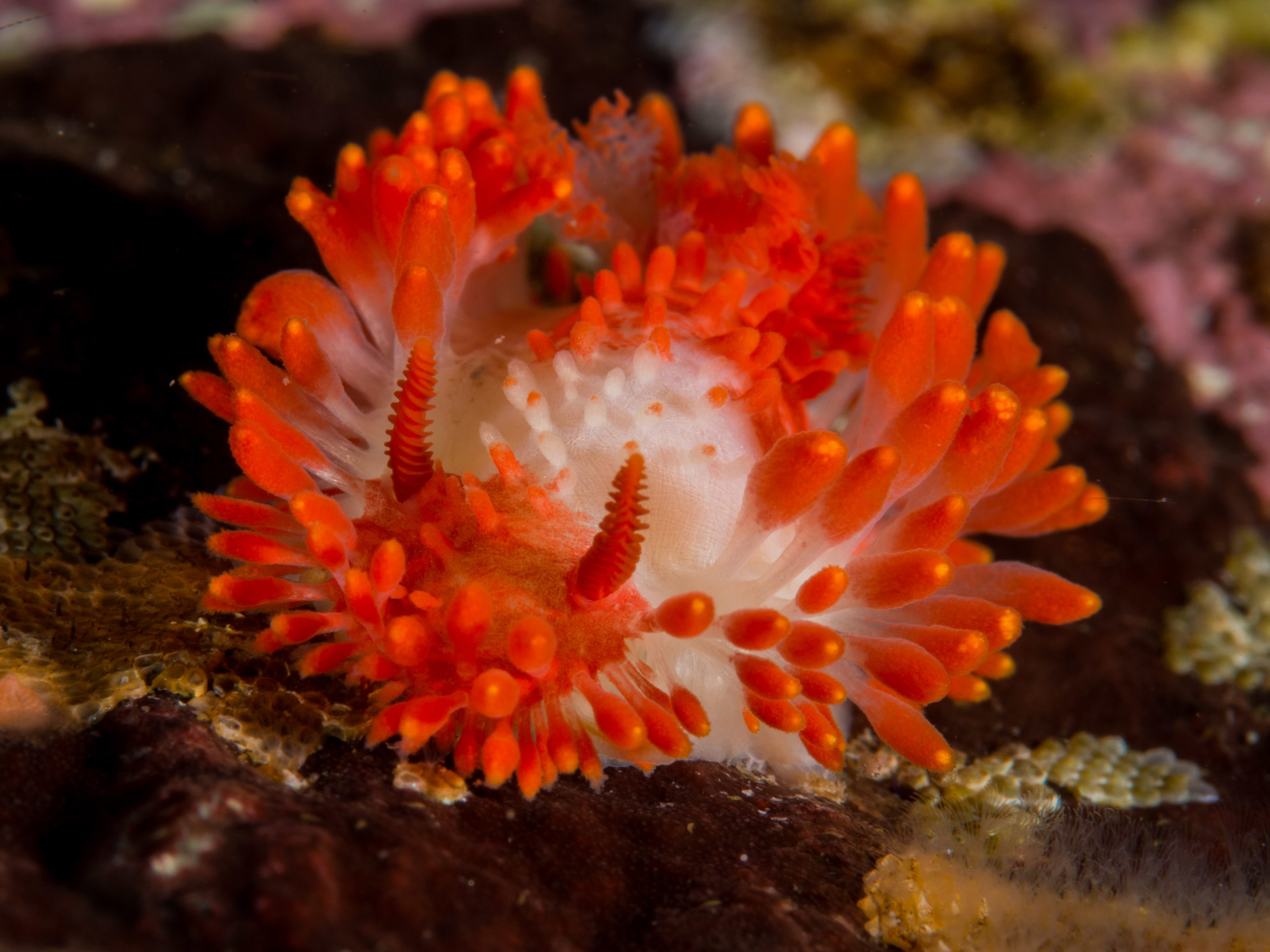
Weekly Ocean News
Ecosystems and Biodiversity
Coral reefs are under threat from climate change, but new research suggests that other reef-building animals might be more adaptable. Sponges are an ancient group of animals who often build structures on coral reefs (among other places), and as oceans change they may become more dominant. Via Phys.org
Scientists have identified 17 new species of sea slugs on the Indo-Pacific coral reefs. By using new genetic tools, scientists have organized this family tree not only by anatomy, but also by colour, because nudibranchs, a type of sea slug, are known for their varied colours and patterns. Researchers are also using genetic analysis to look into colour mimicry and the evolution of patterns amongst groups of distantly related animals. Via EurekAlert!
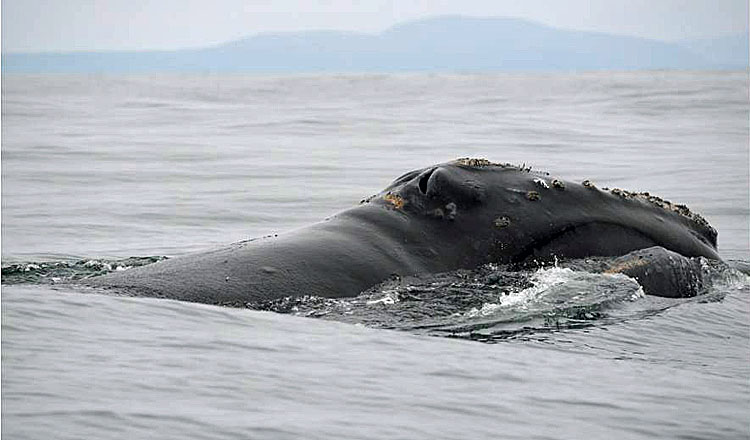
Researchers are analyzing the surface behaviours and vocalizations of right whale mothers and their calves, hoping new information can help protect these endangered animals. Studies show that new mothers spend a lot of time near the surface of the water with their offspring, especially during the first few months of their calves’ lives. This is putting them at risk of being injured by boats or being caught in fishing nets. Conducting visual surveys to locate groups of right whales and alerting boats in those areas may be key to ensuring the survival of this species. Via EurekAlert!
Water Quality and Supply

breakdown from textiles or larger pieces, are turning up in human stool.
A recent study found microplastics in stool samples from European and Japanese subjects, and suggest that over half of the Earth’s population is likely to exhibit similar symptoms. The authors stress that further research into proliferation and health effects, in addition to measures to reduce plastic pollution, are urgently needed. Via The Guardian
A 2020 moratorium on dirty shipping fuel may lead to even more ocean pollution The International Marine Organization (IMO) is restricting fuel to 0.5% sulphur content (as opposed to the current 3.5%) following concerns over its negative impacts on human health. However, open loop scrubbers (which are cheaper than cleaner fuel) are one way to meet this requirement. Open loop scrubbers clean fuel at sea, removing sulphur before it is emitted into the atmosphere, and then release sulphur into the ocean as wash water. Pollutants include particulate matter, sulphur, as well as metals including lead, nickel and zinc. The predicted increase in vessels with scrubbing technology will likely lead to unintended impacts on ocean life. Via The Guardian
Government Initiatives
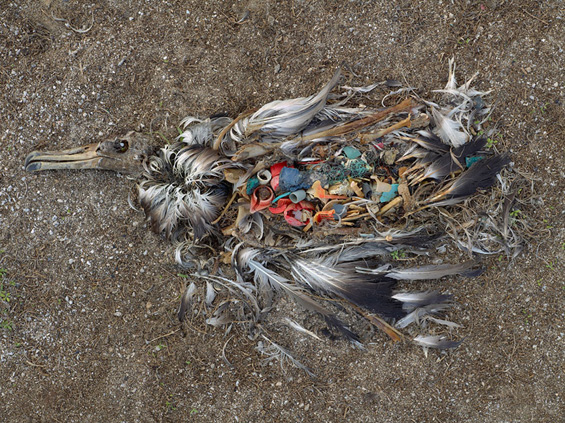
In an effort to cut plastic pollution, over 250 companies, governments, and other organizations from around the world, including some of the most prolific plastic polluters, have pledged to cut plastic use and production by 2025. Their progress will be reported on every 18 months, and targets will become more and more ambitious as time progresses. It sets a 2025 target to make 100% of all plastic packaging either reusable, recyclable or compostable. However, some environmental groups believe that the pledge doesn’t go far enough, allowing companies to focus on recycling instead of reduction. Via Ecowatch
Bloomberg Philanthropies has committed an additional $86 million, as part of the Vibrant Oceans initiative, to help the health of the world’s oceans, focusing on coral reefs. The goal is to protect 50 coral reefs over the next four years from pollution and destructive fishing practices by supporting coastal communities in banning practices, such as bottom trawling. These reefs (containing a total of 75% of coral species) were identified based on potential to withstand climate change and repopulate neighbouring reefs. Via The Guardian
Energy and Power
Transportation, housing and food production are labelled as the largest contributors to climate change, but new research shows that the cryptocurrency Bitcoin should be added to the list. If implemented into society at the average rate that new technology usually is, the electricity demands of operating Bitcoin could push the planet over the 2°C warming target in just 16 years. Via EurekAlert!
Posted November 2, 2018 by Ocean Wise
